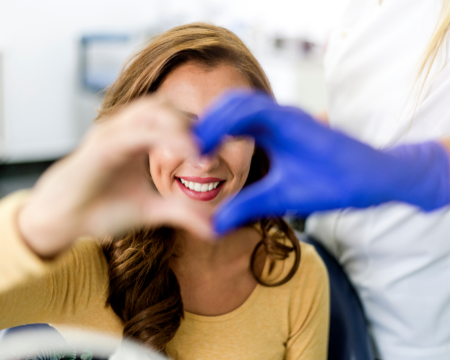
Thank you for your interest in becoming a volunteer in our Standardized Patient Program. Your participation in our program will assist us in ensuring proper training for our future physicians. Effective communication skills, good bedside manners, and competent clinical skills are the hallmark of good physicians. These skills are best taught, practiced and evaluated while interacting with real people; and who is better qualified to evaluate the bedside skills of future doctors then the patients themselves? Students are grateful for the opportunity to work with Standardized Patients (SPs) and practice their clinical skills. Your commitment to the Center for Clinical Skills (CCS) is important to our program. Without your participation, we would not be able to offer this effective and innovative program to students. We really appreciate your time and efforts. We are confident you will find your experiences with our program to be rewarding and enjoyable. Our program is continually evolving as we strive for excellence.
CCS is an integral part of the University of Hawaii’s John A. Burns School of Medicine. CCS trains volunteers to act as ‘real’ patients in order to provide simulated experiences to enrich student learning and evaluation in a safe environment.
A Standardized Patient, also referred to as an SP, is a person who has been trained to accurately and consistently portray the medical background, physical condition, and emotional state of an actual patient. As a Standardized Patient, you will be interviewed and/or examined by male and female students who are training to become healthcare professionals (e.g. physicians, nurses), just as you would by your family doctor. In general, each encounter with a student involves history taking, physical examination and counseling, or a combination of these. In general, when students perform physical examinations, they are focused on the area of the patient’s complaint. These examinations may include: listening to your heart and lungs with a stethoscope; pressing on your stomach; using a flashlight to look in your eyes, ears, nose and throat; taking your pulse and blood pressure; or checking muscle strength and reflexes. Breast, pelvic, genital or rectal examinations will not be performed. Invasive procedures such as drawing blood, taking X-rays, or taking throat cultures are never performed. The student’s task may also include counseling you on topics such as healthy lifestyles, weight control, diabetes, stress management, high blood pressure, smoking cessation or cholesterol. In the patient role, you may see several students on a one-on-one basis or there may be a group of students working with you in a controlled teaching session.
Most of our volunteers have had no previous acting experience. We will provide all the training you will need.
You do not need to know anything about being a patient or have special medical knowledge. You will meet with one of our SP trainers who will explain what you need to do and to practice with you. A training manual is provided which details the current medical problem, past medical history, family and social situation, and emotional state you will need to portray. You might be asked to portray someone who is quiet, talkative, agitated, depressed or perhaps disoriented. Your training materials will contain all pertinent information you will need to provide answers to the students’ questions. The case material will even tell you how knowledgeable or ignorant you will appear to be about your medical condition.
You will need to learn the facts of your case such as the name, age, reason for seeing the doctor, general sequence of events in your illness, etc. It is important to be completely familiar with all the information for your case, although it is not necessary to memorize everything word for word.
SPs may be required to wear hospital gowns and undergarments during the sessions. Students are always required to respect the patient’s modesty. If a student makes you feel uncomfortable because of the way you are exposed, you are allowed to ask to be draped.
If the student is causing you pain or discomfort, you will be able to let them know. If the discomfort continues, it is okay to tell the student to stop and to inform the trainer of any problems.
SPs are chosen based upon the case requirements. These requirements may include age, gender and/or physical attributes. Most volunteers are called once to a few times a year. You are always free to decline participation in an event. If your assistance is needed, an SP Trainer will contact you prior to an event.
Once you commit to helping us with a case, we hope we can count on your commitment. Your participation is vital to us administering these experiences. We know that emergencies do arise. If at the last minute, you are unable to participate, we ask that you call the office immediately! A replacement will need to be recruited and trained.
If you have scars, they may exclude you from certain cases. For example, an SP who has had an appendectomy could not portray a patient with appendicitis. However, a surgical scar might not matter in a case about a headache or wrist pain.
You may be asked to make specific observations about the skills of students you encounter. For example you may be asked to complete a checklist of tasks that each student is expected to perform or a questionnaire rating the students’ communication skills. Students never see your individual answers.
All encounters are video recorded to monitor and evaluate student/patient encounters as well as for standardized patient quality-control. They are not shown to anyone except students, faculty and other standardized patients without your permission.
Standardized Patients have the satisfaction of knowing they have made a difference in the education and training of our future medical professionals. When funds are available, you will receive a monetary stipend for volunteering your time. We also provide parking, food and snacks. In addition, during the course of an exam day, SPs enjoy socializing with one another.